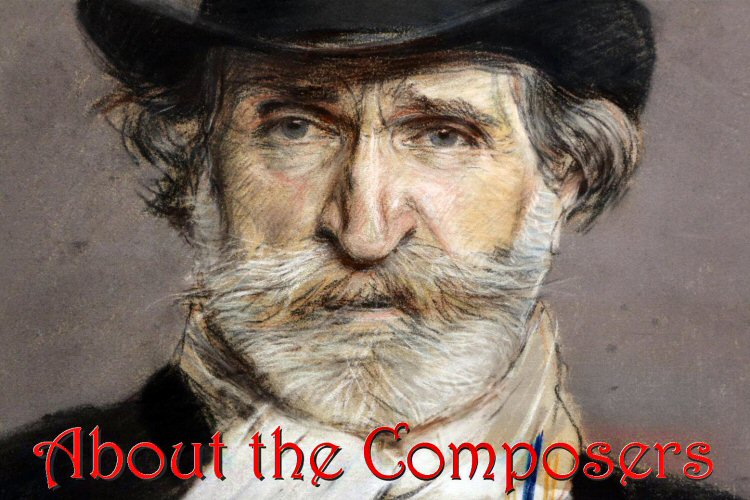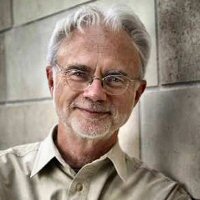
— Nixon in China sampled in Class 1.
One of the founders of musical minimalism, Adams has turned his attention to operatic subjects based on relatively recent history and posing political questions. Examples include Nixon in China (1987), The Death of Klinghoffer (1991), and Doctor Atomic (2005), all of which have been produced at the Met. He has beeen especially associated with the director Peter Sellars, who also compiled the texts for all his operas from 2000 on.
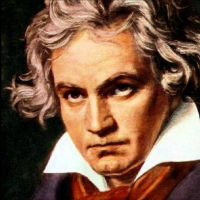
— Fidelio featured in Class 5.
Indisputably the greatest composer of his time, Beethoven revolutionized every genre he touched: the symphony, the string quartet, the instrumental sonata, and many others. But he made only one foray into opera, with Fidelio (originally called Leonore) which he labored on in several versions between 1805 and 1814. It is the only opera of the first decade of the century still in the standard repertoire.
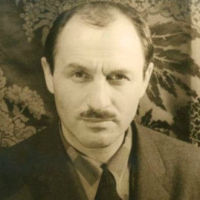
— The Cradle Will Rock featured in Class 11.
Although he studied with Schoenberg, Blitzstein's mature work is diatonic with injections of popular music and jazz, placing him somewhere between Kurt Weill and Leonard Bernstein. His opera The Cradle Will Rock (1937) is testament to his Socialist leanings; his Regina (1947), based on The Little Foxes by Lillian Hellman, is still occasionally produced.

— The Threepenny Opera mentioned in Classes 1 and 11.
— The Rise and Fall of the City of Mahagonny featured in Class 11.
Brecht's importance to opera rests mainly on his collaborations with Kurt Weill between 1928 and 1932: The Threepenny Opera, Happy End, Mahagonny, and The Seven Deadly Sins. A Communist, he fled the Nazi régime, but returned after the War to found the celebrated Berliner Ensemble in East Berlin.
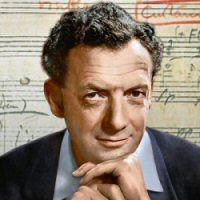
— Gloriana featured in Class 2.
Arguably the leading opera composer of the mid-20th century, Britten's major operas have included Peter Grimes (1945), Billy Budd (1951), Gloriana (1953), A Midsummer Night's Dream (1960), and Death in Venice (1973), plus many stage works for smaller forces. He was equally active as a composer of vocal and instrumental music, and latterly as a conductor and accompanist,
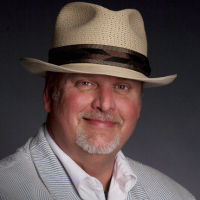
— Jackie O featured in Class 12.
Daugherty's training and subsequent studies place him at the forefront of the American and European avant garde, but his works tend to have pop-culture subjects, such as his Batman-inspired Metropolis Symphony (1988–83) or Dead Elvis (1993) for bassoon and small ensemble. Jackie O (1997), for chamber forces, is his only opera.
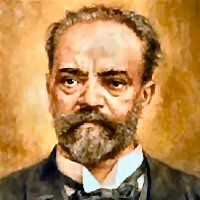
— Rusalka featured in Class 3.
Dvorak composed ten operas, many of which have a continued presence in his native land. But only his fairy-tale opera Rusalka (1901), a variant on the Little Mermaid story, has had true international success, cropping up in an astonishing range of productions in the last few decades.
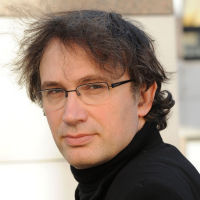
— Claude possibly included in Class 5.
Like the late Olivier Messaien, Escaich holds a post as organist at one of the principal churches in Paris, while maintaining a career composing works for other medium. His first opera Claude, based on a story by Victor Hugo, premiered in 2011 at the Opéra de Lyon, to critical acclaim for its emotional intensity.
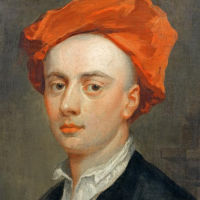
— The Beggar's Opera sampled in Class 1.
Although he wrote the libretto for Handel's early opera Acis and Galatea (1718), Gay is best known as the author of The Beggar's Opera (1728), satirizing the very kind of opera that Handel made famous. The songs in this piece about highwaymen and whores are sung to popular tunes arranged by the German-English composer Johann Pepusch.
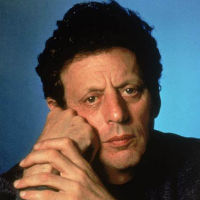
— Satyagraha featured in Class 11.
Glass, who was born in Baltimore and studied at the Peabody Prep, is one of the founders of Minimalism and, with John Adams, its leading composer of opera. Prominent among his 15 operas is a trilogy about significant figures from history: Einstein on the Beach (1976), Satygraha (1979, about Ghandi), and Akhnaten (1983, about the Egyptian pharaoh of that name).
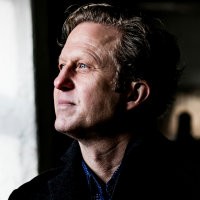
— The Promise sampled in Class 6.
Larsson Gothe has a long list of compositions in all genres, including both orchestral and chamber music. The Promise, which was commissioned by the Royal Swedish Opera for Holocaust Remembrance Day, January 2022, is his seventh opera.
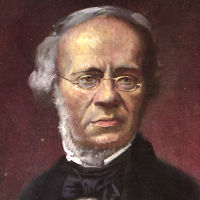
— La Juive featured in Class 6.
The chorus master first at the Opéra Comique and then at the Paris Opera, Halévy achieved lasting fame with La Juive (The Jewess, 1835), one of the earliest and grandest of French grand operas, and dealing with an historical subject (persecution of the Jews in 1414) close to the composer's heart.
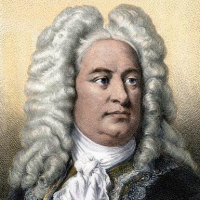
— Tamerlano and Saul sampled in Class 1.
Gradually over the last half-century, Handel's 42 operas and numerous dramatic oratorios have been recognized as placing him on the level of Mozart and Verdi as an opera composer. The delay in appreciation is partly due to the fact that his preferred form, opera seria, is based almost entirely on recitative and solo arias. Born in Germany and trained in Italy, he dominated the English musical scene in the first half of the 18th century.

— Dead Man Walking possibly included in Class 5.
Heggie came to fame as an opera composer in 2000, with his adaptation of Dead Man Walking by Sister Helen Prejean, who appears as a character in the opera. He went on to write an operatic version of Moby Dick (2010), a dramatically impressive condensation of Melville's huge book, to great critical acclaim.

— From the House of the Dead featured in Class 5.
Janácek turned to opera fairly late in his career, but his half-dozen mature works in the medium place him in the forefront of opera composers of the 20th century, not only for their distinctive musical style but also their unusual structure and dramatic innovation. Among them are: Jenufa (1903), Káta Kabanová (1921), The Cunning Little Vixen (1923), The Makropoulos Affair (1925), and From the House of the Dead (1928).
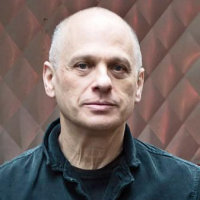
— Prisoner of the State possibly included in Class 5.
Born in Los Angeles, but now living and working in New York, Lang was a co-founder of the musical collective Bang on a Can. In 1908, he was awarded the Pulitzer Prize for Music for The Little Match Girl Passion, a retelling of the Andersen story using the structure of a Bach Passion.
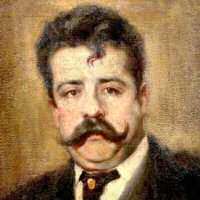
— I pagliacci possibly referenced in Class 10.
Although he wrote many operas, Leoncavallo's reputation rests upon a single work, I pagliacci (the players, 1892), a two-act opera generally performed as half of a double bill. But that is one of the cornerstones of Italian verismo—a movement characterized by its depiction of the passions of ordinary people.
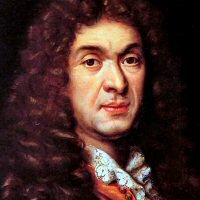
— Atys featured in Class 2.
Lully became master of music to Louis XIV, writing music in all genres, but most especially operas and ballets. His operas include Alceste (1675), Atys (1676), Persée (1682), and Armide (1686).
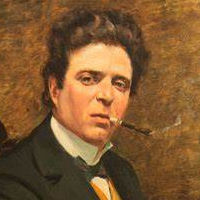
— Cavalleria rusticana featured in Class 10.
While still in his twenties, Mascagni won first prize in a 1890 competition sponsored by the music publisher Sanzogno. Cavalleria rusticana (Rustic Chivalry), the winning work, soon achieved worldwide popularity, particularly in combination with another single-act work, Leoncavallo's I pagliacci (1892), which together virtually define the verismo style. None of his other operas has achieved such fame.
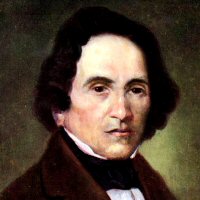
— Les Huguenots possibly mentioned in Class 6.
Although born and trained in Germany, Meyerbeer began his prolific opera career in Italy, falling under the spell of the serious operas of Rossini. He moved to Paris in 1826 and began a series of operas that essentially defined the notion of Grand Opera, among them Robert le Diable (1831), Les Huguenots (1836), Le Prophète (1849), and L'Africaine (1865).

— Orfeo and Poppea featured in Class 1.
The towering genius of the first half of the 17th century, and a founding father of opera. Unfortunately, only three of his dozen operas survive: La favola di Orfeo (The Story of Orpheus), written for Mantua in 1607 and the earliest opera to remain in the general repertoire, and The Return of Ulysses and The Coronation of Poppea, both written for Venice at the end of his life.

— The Abduction from the Seraglio and La Clemenza di Tito in Class 2.
— The Marriage of Figaro and Don Giovanni featured in Class 4.
A child prodigy as both performer and composer, Mozart produced an extraordinary body of work in all genres over a relatively short life. He wrote the greatest of his many operas after moving to Vienna: three collaborations with Lorenzo da Ponte—The Marriage of Figaro (1786), Don Giovanni (1787), and Così fan tutte (1790)—framed by two German Singspiels: The Abduction from the Seraglio (1782) and The Magic Flute (1791).
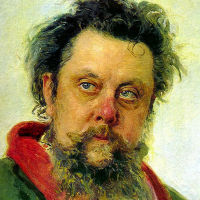
— Boris Godunov featured in Class 9.
Like many of his fellow nationalist composers among the "Famous Five," Mussorgsky had another profession, in his case as an army officer. His musical style as shown in his operas such as Boris Godunov (1869–74) and Khovanshchina (1873, unfinished) apeeared to his contemporaries as crude, and for many years his works were performed in edited editions, but recent productions have revealed the vigor of his highly original style.
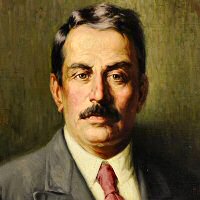
— La bohème sampled in Class 1.
— Other operas possibly mentioned in Class 10.
Puccini took up the mantle of Verdi as the dominant opera composer of the late 19th century, and developed an international popularity that is unrivaled to this day. His principal works include: Manon Lescaut (1893), La bohème (1896), Tosca (1900), Madama Butterfly (1904), and the unfinished Turandot (1926). His representation in this course is sadly not commensurate with his fame.
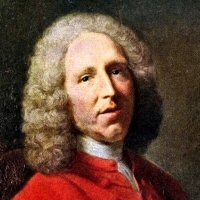
— Les Indes galantes featured in Class 3.
Rameau first won fame as a music theorist and composer of harpsichord music. It was not until his 50th year that he wrote the first of the elaborate operas (tragédies en musique) on which his fame now rests. These include Hippolyte et Aricie (1733), Les Indes galantes (The Amorous Indes, 1735), Dardanus (1737), and the posthumous Les Boréades (Sons of the North Wind, 1763).

— The Invisible City of Kitezh featured in Class 9.
Though a naval officer in professional life, Rimsky was the most brilliant orchestrator of the "Famous Five," and responsible for completing Borodin's Prince Igor and preserving Mussorgky's Boris Godunov for many decades in more conventional clothing. His own operas such as The Invisible City of Kitezh (1904) and The Golden Cockerel (1907), are staples of the Russian repertoire, but less frequently produced elsewhere.
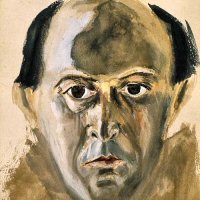
— Moses und Aron possibly mentioned in Class 6.
Schoenberg is most famous in the history of music as the developer first of atonal music and then of the principle of musical organization known as Serialism. Although he wrote three shorter operas, his masterpiece is Moses und Aron. Although he conceived it in three acts, Schoenberg had only finished two when he emigrated to America in 1934, and it is this version that is usually performed. [Schoenberg was also a painter; this is a self-portrait.]

— Jerry Springer: the Opera included in Class 12.
Thomas won four Olivier awards for his 2001 musical Jerry Springer: the Opera. A pianist, performing comedian, actor, and television presenter, he also wrote the libretto for Mark-Anthony Turnage's 2011 opera Anna Nicole (see below).
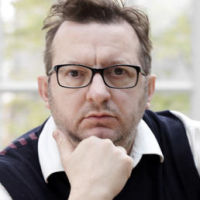
— Anna Nicole featured in Class 12.
Turnage's operatic work includes Greek (1988, the Oedipus story relocated to the East End of London), The Silver Tassie (2000, after the play by Sean O'Casey), Anna Nicole (2013, with libretto by Richard Thomas), and Coraline (2018, after a novella by Neil Gaiman).
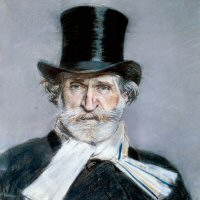
— Nabucco mentioned and La battaglia di Legnano featured in Class 1.
— Un ballo in maschera and Don Carlos featured in Class 7.
The composer of 27 operas from Oberto (1835) through Falstaff (1893), Verdi became the premier opera composer in Italy and, with his exact contemporary but very differently-thinking Richard Wagner, in the world. His reputation rests mainly on the astonishing trio of operas that launched his middle period—Rigoletto (1851), Il Trovatore, and La Traviata (both 1853)—and by his three final works: Aida (1871), Otello (1887), and Falstaff (1893).
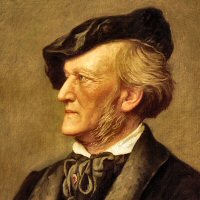
— Der Ring des Nibelungen and Parsifal featured in Class 8.
Wagner almost single-handedly transformed the nature not only of opera but also of harmony and orchestration. His 10 mature operas include Tristan und Isolde (1865), Die Meistersinger von Nürnberg (1868), and the vast tetralogy Der Ring des Nibelungen (completed 1876), for which he had a special theater built at Bayreuth. His final opera, Parsifal (1882), was written for exclusive performance at that theater.
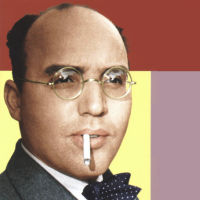
— The Threepenny Opera mentioned in Class 1.
— The Rise and Fall of the City of Mahagonny featured in Class 11.
Weill became famous in Berlin for his collaborations with Bertolt Brecht, among them The Threepenny Opera (1928, a satirical adaptation of John Gay's The Beggar's Opera, see above) and the political opera The Rise and Fall of the City of Mahagonny (1930). Fleeing Nazi Germany, he eventually settled in New York in 1935, finding new fame on Broadway, but also writing more operatic fare such as Street Scene (1946, with Langston Hughes).
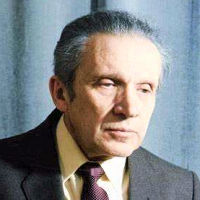
— The Passenger featured in Class 6.
Weinberg escaped the Nazis by fleeing to Russia at the start of WW2. There he came under the influence of Dmitri Shostakovich, who encouraged his career. His prolific work, for a while largely forgotten, has benefitted from a revival of interest in the past decade, most notably including his post-Holocaust opera The Passenger (1968), which has been produced around the world following its 2010 premiere at the Bregenz Festival.
